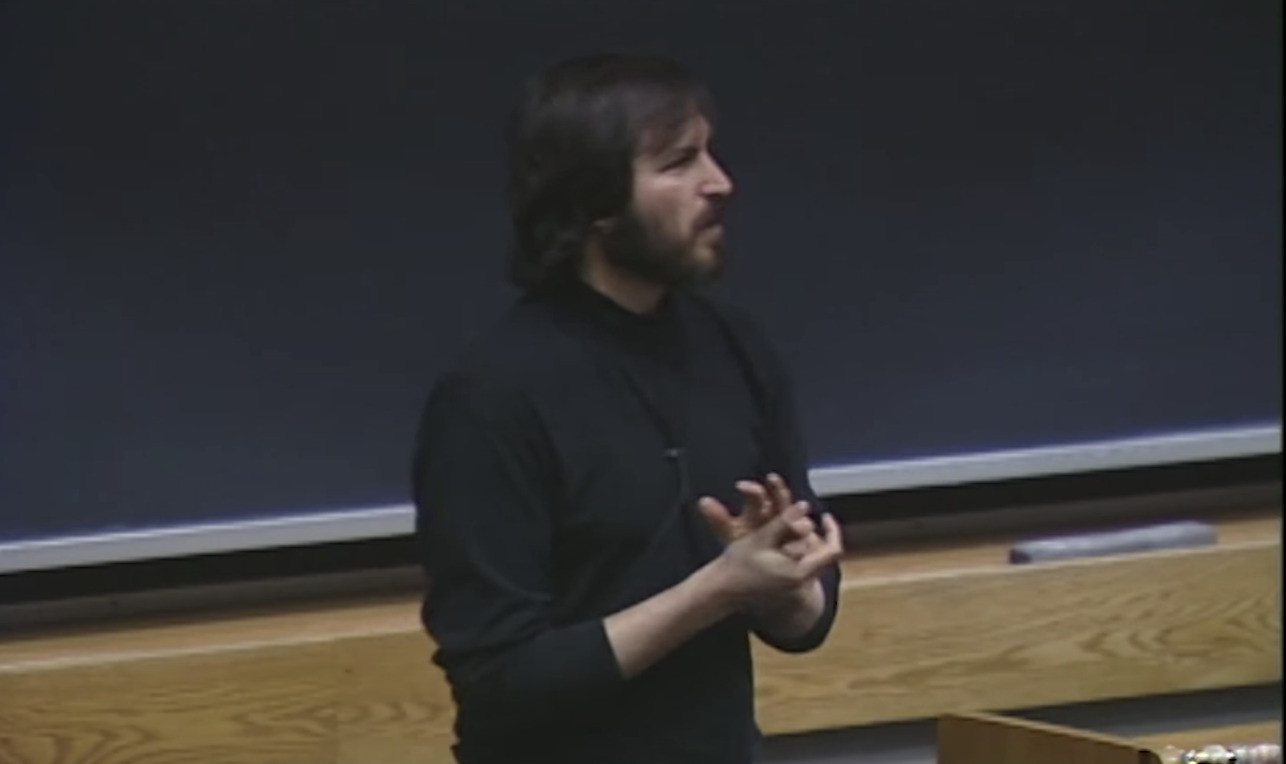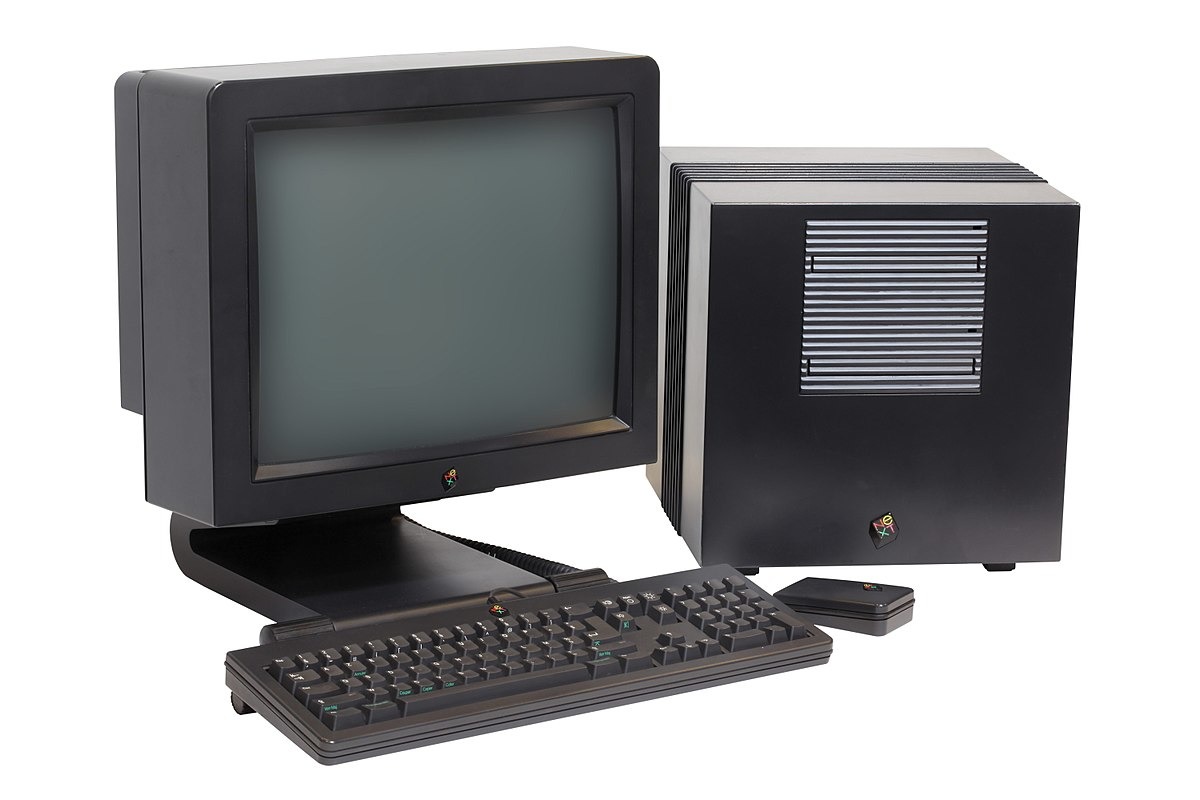In a 1992 talk on the MIT campus, Apple founder Steve Jobs assailed consultants, talked about his departure from Apple and how his ouster was a loss not just for him, but for consumers as well.
The Massachusetts Institute of Technology has unearthed a Steve Jobs speech that the Apple cofounder delivered to the Sloan School of Management in the spring of 1992, and posted the entire speech to YouTube. In the speech, delivered during Jobs' time with NeXT Computer, Jobs talked about his vision for NeXT and his distaste for consultants, while also telling some stories from his first run at Apple.
The speech was posted to YouTube in December, but MIT alerted the media to its existence this week.
Clad in the long-sleeved black shirt and jeans that resembles his uniform for keynotes in his later years, Jobs talked about his time at Apple, as well as his departure.
"Everybody lost"
In addressing his departure from Apple, Jobs said that "I think everybody lost."
"I think I lost — I wanted to spend my life there. I think Apple lost, I think customers lost. Having said all that, so what? You go on," said Jobs. "It's not as bad as a lot of things so, people go on, and companies go on. I'm very happy every time Apple ships a Mac."
But Jobs also had things to say about what happened to the company after his departure seven years earlier.
"Apple has been struggling the last few years," he added. "They've been having a real struggle with who they want to be There were two camps within Apple. Camp 1 wanted to be the serious computer company and Camp 2 wanted to sort of be the Sony of computers. That struggling was somewhat tearing Apple apart, and fortunately the Sony guys won. They're abdicating, and basically not putting a lot of resources into the power users on desktops. And I think they'll do very well at that."
Jobs questioned, though, whether Apple's strategy could work at scale.
In another part of the lecture, Jobs is asked what he learned from Apple. When asked by an audience member, he begins with a long pause.
"I now take a longer-term view on people," Jobs said. "When I see something not being done right, my first reaction isn't to go fix it, it's to say we're building a team here and we're going to do good stuff for the next decade, and not just the first year. So what can I do to help so that the person who's screwing up learns."
"Without the app, you don't have a product
In addressing the work he was doing at the time with NeXT, Jobs talked about the importance of operational productivity, over management productivity.
Jobs discussed NeXTSTEP, a NeXT operating system "which lets you build apps five to ten times faster than anything anyone has ever seen," he said. "And after you build them, they're deployable and usable by mere mortals." While NeXTSTEP wasn't considered a wide commercial success at the time, it was the platform on which Tim Berners-Lee created the World Wide Web in 1989.
Jobs, at one point, asks how many people in the room have used a NeXT Computer, and it's clear from his reaction that it wasn't many.
Jobs vs. Consultants
Jobs, in the lecture, makes it clear that he has a distaste for consultants. Asking if anyone in the audience is in consulting, he declares, "oh, that's bad. A mind is too important to waste."
"The only consultants I've seen that I think are truly useful are the ones who help us sell our computers," Jobs said. "But other than that I don't think there's anything inherently evil in consulting. I think that without owning something over an extended period of time, like a few years, where one has to see one's recommendations through all action stages and accumulate some scar tissue for the mistakes and pick one's self up off the ground and dust one's self off, one learns a fraction of what one can. You do get a broad cut at companies, but it's very thin."
In 1996, four years after the lecture, Apple would acquire NeXT, bringing Jobs back into the fold. The following year, he became CEO.
 Stephen Silver
Stephen Silver








-m.jpg)






 Marko Zivkovic
Marko Zivkovic
 Christine McKee
Christine McKee
 Andrew Orr
Andrew Orr
 Andrew O'Hara
Andrew O'Hara
 William Gallagher
William Gallagher

 Mike Wuerthele
Mike Wuerthele
 Bon Adamson
Bon Adamson




-m.jpg)



15 Comments
He was absolutely correct. Product consultation is like leaving the Fox to guard the hens.
Love this quote:
This quote was totally Jobs throwing shade on Apple for abandoning power users with the implicit objective being to attract power users to NeXT (since NeXT was exclusively focused on the high-end).
Of course, it wasn't exactly true. A very big share of Apple's business came from the DTP world at that time. The Mactinosh II line, Quadras, and eventually PowerMac was all focused on the high end.
And yet, despite that clearly being a very motivated statement, it wasn't exactly wrong either and it certainly applies today even more than back then. Apple is much more the "Sony of computers" than the "serious computer company" (by "Sony", I mean the positive 1980s version, not the lame 2000s version).
I started watching this video and I could really see how Steve's mind was able to influence enough people at Apple to turn things around.
It might just be me, but I think he had a more precise focus of vision of things than Tim does.
Maybe all the leaders at Apple should watch this video and get inspired to make some positive changes and put more emphasis on making the highest quality products rather than just making products.